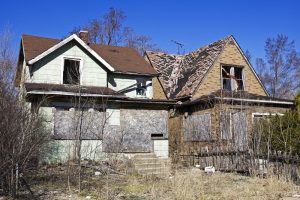Real Estate Investing Lingo 101
Analysis paralysis is the deadly phase of the newbies start into wealth creation through real estate. There are so many avenues to go into when it comes to investing into real estate and so many terms and abbreviations that people throw around it can paralyze any new-comer and leave them dead in their tracks unable to pull the trigger on their first investment whether that be flipping, buy and hold, turn key, or syndication. So here are the 16 most common real estate terms that any new investor needs to know to get past their fear and move forward with their first investment confidently.
1. After Repair Value (ARV)
This is the value of a home after repairs have been made to the property to
appreciate the value. This is most commonly used when talking about flips,
single family rehabs for buy-and-hold, and value add multifamily.
2. Loan To Value (LTV)
This is the amount a lender is willing to lend on a property using the market value
of the property determined by an appraiser. For instance if an appraiser
determines your property to be worth $100,000, then the bank may lend up to
70% of the property or $70,000.
3. Return On Investment (ROI)
This is the percentage you have returned on your investment. If you flip a house
and buy it $30,000 and put $30,000 into the rehab for a total of $60,000 and sell
it for $120,000 and are left with $52,800 after commissions and fees then your
return on investment is 88%. $52,800 divided by $60,000 equals 88%.
4. Turn Key
This applies to investors who buy a house that is currently rented out with
property management in place. This is where the investor puts down a 25%
down payment and has a investment property with little work to the investor.
5. Net Operating Income (NOI)
This is the income a property produces after debt paydown, fees, taxes,
insurance, repairs, and other operating costs.
6. Capitalization Rate (Cap Rate)
This is the percentage the property will return after expenses if you were to buy
the property all cash. If you buy a multifamily home for $100,000 cash and it’s net
operating income is $10,000 then you have a cap rate of 10%. $10,000 divided
by $100,000.
7. Capital Expenditures (Cap Ex)
These are the large ticket items on a property such as the roof, water heaters,
appliances, siding, windows, and furnaces.
8. Single Family Residence (SFR)
This is a single family home, your average everyday house.
9. Multi Family Residence (MFR)
This is a property that hold 2-4 units. i.e. Duplex, Triplex, Fourplex.
10. Large Multi Family (LMFR)
This is a property that has 5 or more units.
11. Earnest Money
The money you put down that you lose if you pull out of the deal.
12. Real Estate Owned (REO)
A property owned by a bank or financial institution.
13. Short Sale
A property being sold for less then what the loan on the property is for.
14. Pocket Listing
A property for sale that the agent or broker knows about that is not listed on the
MLS.
15. For Sale By Owner (FSBO)
A property being sold without the help of an agent.
16. BRRRR (Buy, Rehab, Rent, Refinance, Repeat)
“BRRRR” is a strategy used to buy a house in need of repair, fix it, rent it out,
refinance your money out of the property, and keep the property and repeat with
another.
17. House Hacking
House Hacking is the investment strategy of living in a property while renting out rooms or other rental units in order to cover your expenses on the property such as the mortgage payment. House Hacking can be done in a single family residence, a duplex or other multi unit property.









6 comments